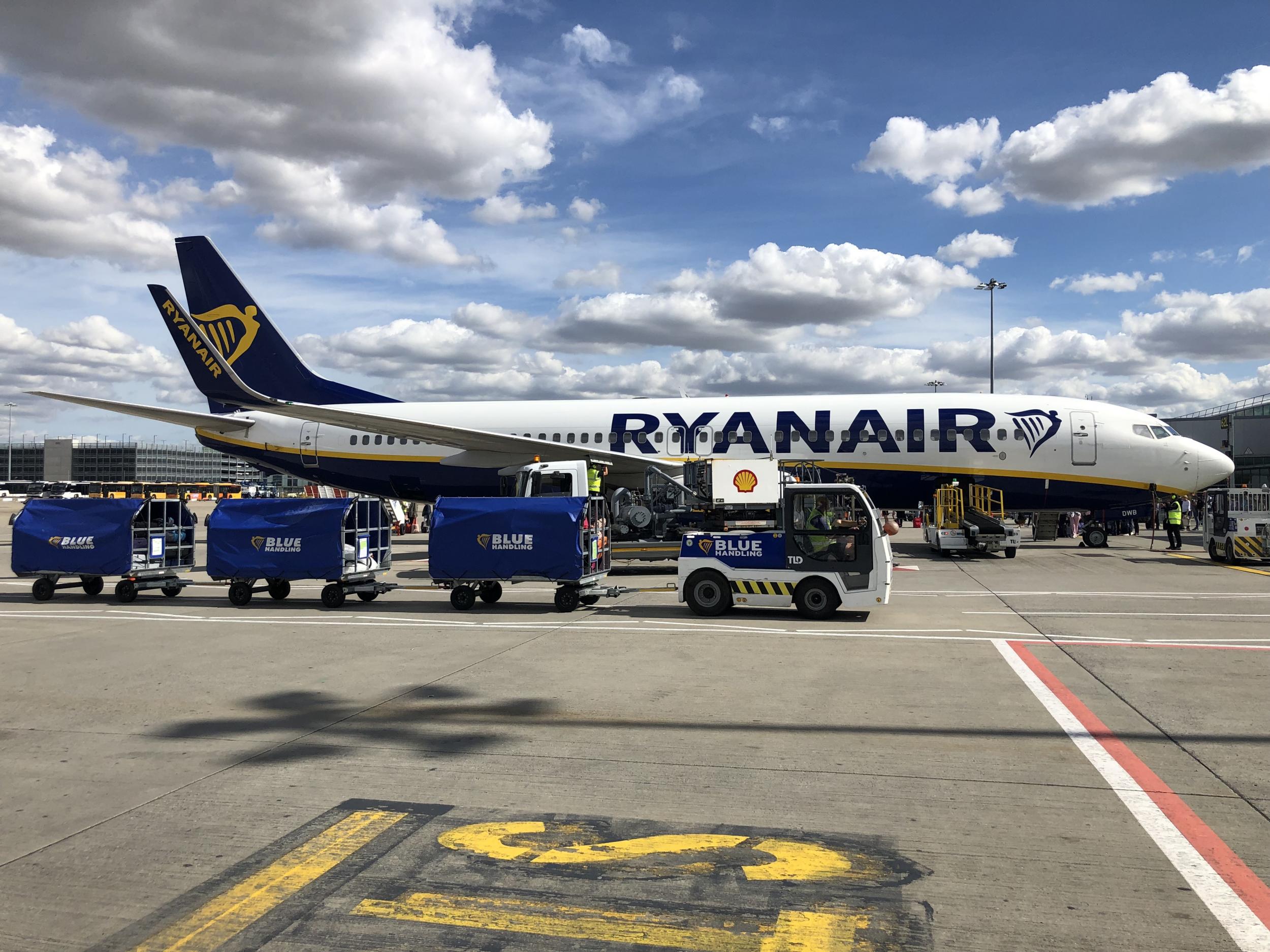Why we need to take a hard line on greenwashing by the likes of Ryanair
It’s a welcome development that consumers are waking up to the climate crisis but companies that target them must prove that their claims stack up, James Moore says


Ryanair being accused of “greenwashing” after getting rapped over the knuckles for claims made in its ads? It probably doesn’t count as the day’s biggest surprise. The airline has a history of sailing close to the line, and sometimes crossing it. It has butted heads with regulators on repeated occasions and will no doubt do so again.
The Advertising Standards Agency (ASA) is one of them, having previously raised issues over claims the airline has made about its prices. There’s also been the occasional tussle over taste and decency. You may recall the company’s history with calendars featuring scantily clad cabin crew (since scrapped).
But while it might not seem that way at first, there are actually some positives you could wring from the latest, climate focussed ding dong.
Let’s deal with the specifics first.
Ryanair ran an ad campaign trumpeting itself with typical bombast as “Europe’s lowest emissions airline”. It also described itself as a “low CO2 emissions airline”. These drew complaints, one of which came from an environmental consultant, that have been upheld.
As the ASA pointed out, consumers really ought to understand that air travel is “commonly associated with high levels of CO2 emissions” and that in choosing to fly they will inevitably increase their own carbon footprints, regardless of the airline they fly with.
Aviation is not a low carbon sport. I personally doubt that there is such a thing as a “low CO2 airline”.
The ASA called into question the comparator group of “major airlines” Ryanair used to make its claims, and noted that a Brighter Planet chart, which ranked Ryanair as top of the overall airline efficiency rankings for CO2 per passenger mile (a statistic also the subject of an involved and fairly technical debate), dated back to 2011.
There’s more besides that, suffice it to say that the regulator said the ads mustn’t be run again in their current form.
Ryanair has, of course, responded with a yah boo sucks to you.
“Ryanair is delighted with its latest environmental advertising campaign, which communicates a hugely important message for our customers. The single most important thing any consumer can do to halve their carbon footprint is switch to Ryanair.”
This sort of thing is very much the airline’s stock in trade.
Just to be clear, the ASA didn’t use the term “greenwashing”. It was down to Transport & Environment, a group campaigning for clean transport. But to my mind, having read the ruling, it easily could have. So far so depressing.
But here’s where there are grounds for modest optimism.
Ryanair is hardly alone in making bold claims about its environmental record which warrant careful scrutiny. All manner of companies are at it because they’ve acknowledged the fact that the public has woken up to the climate crisis.
A growing number of people are treating the latter with the seriousness it deserves and they’re increasingly inclined to steer their custom towards companies that do the same.
It means there’s money to be had in splashing the corporate logo with a dash of green paint.
As well as Ryanair, you have supermarkets promising to cut down on plastic and go carbon neutral, energy companies selling themselves on how much of their product is sourced from renewables, even an oil company (Shell) that has linked its CEO’s bonus to emissions targets.
All of those demand a certain cynicism. I had to listen last week to one of the supermarkets making excuses for not putting energy saving doors on its fridges, like French grocers do as a matter of course.
As for Shell? While it might be trying a mite harder than some of its peers, it’s still an oil company.
Unfortunately, the climate crisis won’t be solved by window dressing. But with so much of the latter going on, the job of a regulator like the ASA has never been more important.
It should take a hard line on any such claims and is deserving of our support when it does. That companies are waking up to the climate crisis, pushed by their customers and even some of their shareholders, is a welcome development. But they need their feet holding to the fire.
Join our commenting forum
Join thought-provoking conversations, follow other Independent readers and see their replies
Comments
Bookmark popover
Removed from bookmarks